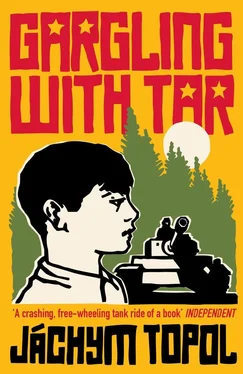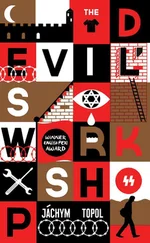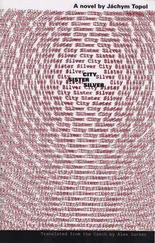I gathered that while in many places disorientated Soviet and other Warsaw Pact soldiers were sitting around in their barracks doing nothing, Czech units, armed to the teeth, were taking over arms factories, occupying airports and aerodromes, demolishing bridges and hunting down the Warsaw Pact armies.
The Warsaw Pact armies had been surprised at the stubborn opposition of the Czechoslovak People’s Army and various armed bands of insurgents.
We had thought that the very first strike by our troops would bring the Czechs to their knees, and then the only people ruling in Prague would be traitors and collaborators, and the whole of Czechoslovakia would become a defenceless satellite of the Soviet Union. ‘ Obviously, that was their miscalculation ,’ the radio announced.
Radio Free Siřem reported that heroic Sasha Dubček was leading the resistance of his people from somewhere below ground at Prague Castle and that the silver-flecked Vltava was awash with the corpses of occupying troops.
‘ Following the attack by the invasion forces and the outbreak of a popular uprising, which has been given effective support by the Czechoslovak People’s Army, the movements of Warsaw Pact troops within Czechoslovakia have been severely restricted. We’ve got the wretched Soviets in a clinch! ’ the radio reported. Then, after its proud call sign (‘ The Truth Prevails! ’), Radio Free Siřem usually played the song ‘Arise, Ye Holy Warriors of Blaník’, followed by the anthem ‘Where is My Home?’.
The radio played these songs over and over again, and before long they even began to be whistled by the good-humoured Gunner Kantariya and other soldiers in our column.
Meanwhile, the number of sacks in the pickups continued to grow. They were hidden under tarpaulins.
The sub-machine-gunners and pickup drivers whistled merrily as they went about their tasks, because they didn’t understand the radio reports.
The radio said that the land of the Czechs was undefeated, yet still more and more Soviet, Polish, Hungarian, Bulgarian and East German units came streaming in.
Also, the radio often spoke of the incredible feats of popular Czech outlaw-heroes.
It was then that I caught the name of Commander Baudyš.
The Soviet command issued an order for all radio transmitters to be destroyed, one by one, in any sector where their armies were operating.
On the day when the gunners and tank crews, headed by Captain Yegorov, heard a radio report that a Slovak national uprising had broken out and that the eagles of the Carpathians had swept aside the invading Soviet units, and that together with the lions of Bohemia they had the enemy in their clutches, Captain Yegorov ordered the radio to be switched off and no-one was allowed to listen to it.
He focused all of his attention on the Radio Free Siřem transmitter in our sector. But we couldn’t put it out of action, because we hadn’t found it, and I really didn’t want to go back to Siřem.
‘ Attention! ’ shouted the radio, in Czech and in Russian, and the sound rumbled out of wirelesses inside every cottage, and the Czechoslovak People’s Army fought hard and not one Czech or Slovak officer capitulated without a shot being fired, and the Czech voices coming over the loudspeakers were full of hatred, and the talking heads on television heaped abuse on the Soviet soldiers. ‘ Isolated groups are fighting their way through the countryside! ’ they announced. ‘ Don’t talk to the occupiers! Don’t offer them a glass of water! Sit tight and await the arrival of the armed forces of the civilized world! ’
The Czechs we interrogated knew only one Russian word: ‘ Neznaju ’, ‘I don’t know’. Yet those village loudspeakers emitted a constant stream of invective at the Russian soldiers, and walls were daubed with slogans and red stars intertwined with swastikas, and lots of the inscriptions were in Cyrillic, and our soldiers weren’t interested in being offered water by the people we interrogated, but in knowing where we were, but the people didn’t tell them.
And so we moved about according to my maps, eliminating any bandits in the sector.
We were at war and sometimes the movement of our column along the minor roads around Chapman Forest meant fighting for every square inch, at times relying on brute violence. We also tried to live a normal life, like drinking tea in the evening. Before joining the army, some of the soldiers and NCOs of the ‘Happy Song’ tank column had lived ordinary lives. But on the tanks we lived only violence. Living violence means that any single moment of one’s life can suddenly turn into the violence that ends in death. That wasn’t in the handbooks.
One morning I walked into the woods whistling a tune, just to… to squat down, to relieve myself like soldiers do. I went into the woods a little way from the tank, just two or three steps until I was hidden by a wall of greenery, the road well out of sight, then something cracked above me and a net fell over me, pulling tight, and a hand over my mouth stopped me from crying out.
They carried me in the net like a rabbit, deeper and deeper into the woods, where they shook me out onto the ground. There were four of them, armed with poaching rifles over their shoulders and knives in their hands.
‘God, it’s just a lad!’ spluttered one of them in Czech.
‘Who are you?’ he asked me.
‘I’m Ilya!’ I blurted out, and to stop them killing me there and then I started gabbling about the Home from Home, Commander Baudyš, the tank column and all that.
‘I see. So you’re a Baudyš boy?’ said one of the bandits, letting out a low whistle.
And then it started. They asked about the Russian column’s firepower, the names of the commanding officers, our numbers and the weak points in the column, like dented armour. They asked about the level of our stocks and fuel supplies, and you could tell from their questions that they had had some training, and I told them everything, even about Captain Yegorov’s sacks. It was easy for me, because I’d been trained too.
And when I explained how I’d been guiding the tanks and the two pickups in circles round and round the area using my maps, their chief patted me on the shoulder and said, ‘Well done, lad!’
They give me some tasty bread and salt pork, and I ate it, though I was far from hungry. Then their chief said, ‘Okay, off you go…’ and I said, ‘What?’ Having talked to them I didn’t feel much like eliminating bandit gangs any more, but their chief said, ‘You’ve got a job to do, haven’t you?’ Then he added, ‘And you can always drop messages inside some roadside shrine. That’ll work, the aggressor being illiterate and all, ha, ha, ha!’ Then they vanished into a thicket. Since they obviously didn’t want me with them in the forest, I stood up and headed back to the tank column.
I didn’t tell anyone there about the interrogation. I’m not mad.
During the day I had plenty of jobs to do in the ‘Happy Song’ tank column. By night my job was to guard Captain Yegorov’s sacks.
After a day full of the tensions of battle, the Captain enjoyed sitting in his tent and sorting out their shiny and precious contents. He soon realized they might be useful. For me there was the joy of pulling a little lever or straightening a bit of bent metal plating and setting an ancient silver watch bearing a portrait of Czechia going again. Captain Yegorov called this type of watch ‘ devochka ’ — ‘the maiden’ — and he was fond of it. Many items were a bit sooty and battle-scarred. There was plenty of repair work to do. I remembered Commander Baudyš and mentally thanked him for all those woodwork and metalwork lessons when he’d taught us to respect the craftsmanship of ‘golden Czech hands’.
Читать дальше












